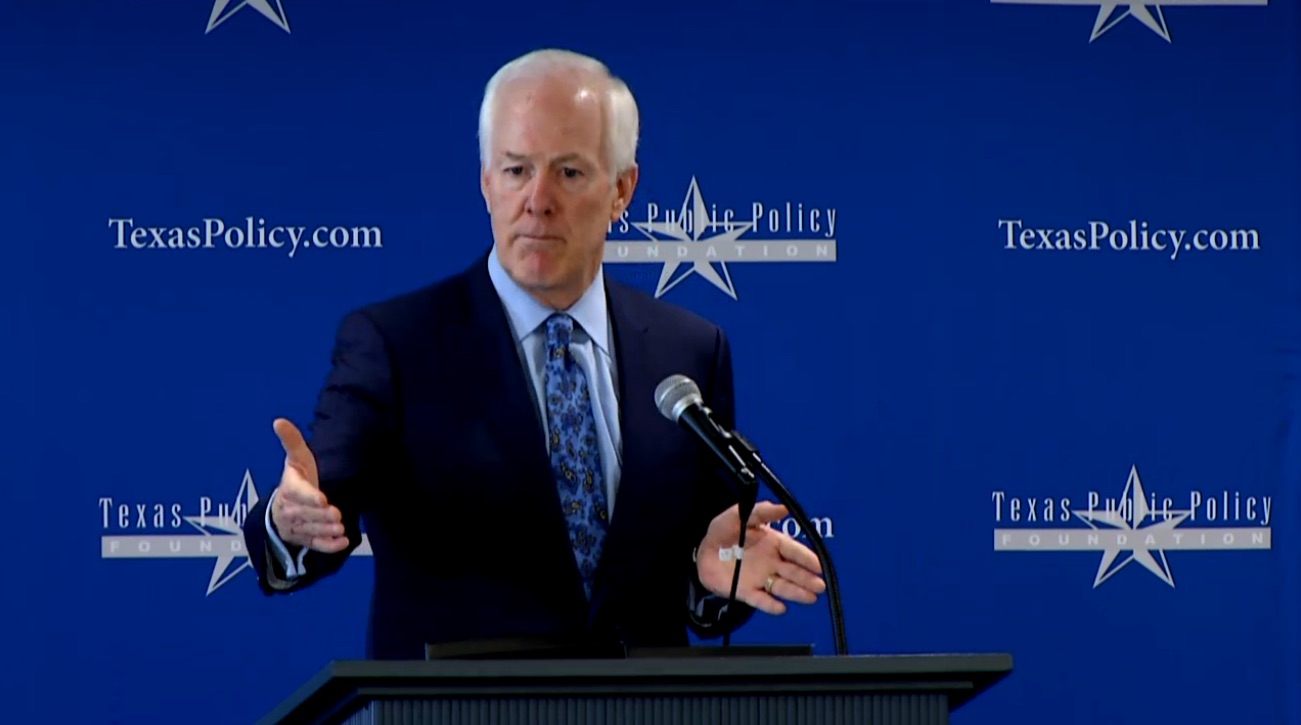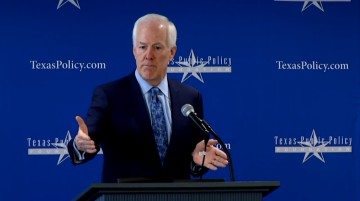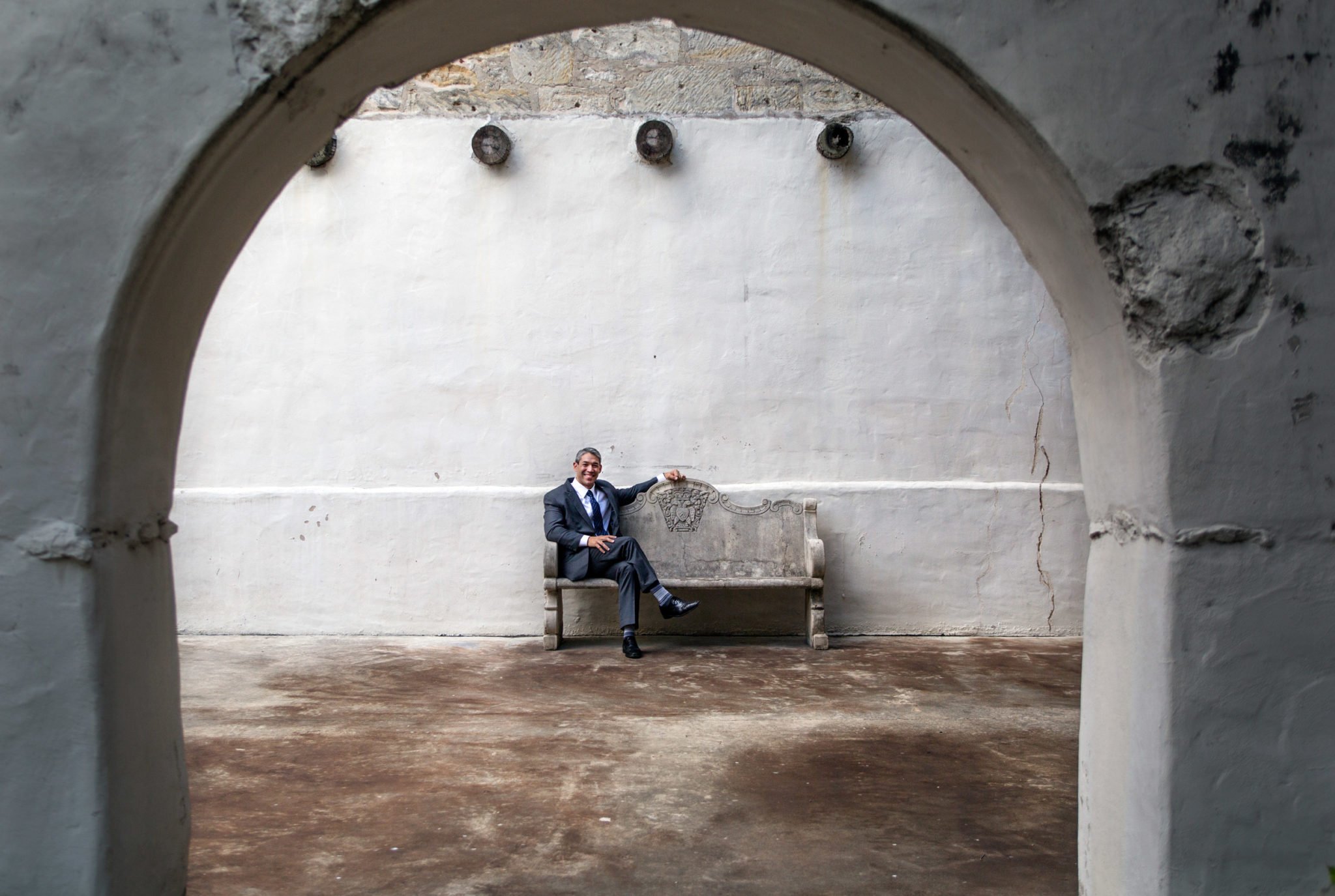
The New ‘Quiet Pessimism’ of Climate Change Denial
Texas conservatives may finally have to admit that a bevy of lawsuits can't stop the Clean Power Plan before it goes into effect in 2018.


Fossil fuel defenders convened at the Texas Public Policy Foundation’s new digs in Austin last week for an energy and climate policy summit that opened with a keynote diatribe against the Obama administration’s “war on coal” from coal miner-turned-billionaire Robert Murray and included a breakfast talk titled “Confronting EPA’s Shredding of Science and the Constitution.”
Sponsored by TPPF, an oil and gas industry-backed conservative think tank, the Crossroads Summit marked the second annual sound-the-alarm conference for climate change skeptics — industry bigwigs and policymakers alike.
So far, the Republican response to the Clean Power Plan, the Obama administration’s sweeping new carbon reduction mandate, has been bombastic: Governor Greg Abbott has criticized it as a “power grab,” while Senator Ted Cruz called it “lawless and radical.” But short of filing scads of lawsuits against the EPA, the GOP still doesn’t have a plan to contend with the Clean Power Plan.
Maybe that’s why something felt different this year. While conferees still spent time trying to debunk established science and Texas Attorney General Ken Paxton opened the conference touting his lawsuit against the EPA, some panelists also expressed what former Colorado Public Utilities Commission chairman Ray Gifford described as a “qualified pessimism” about overturning the Obama administration’s environmental policies.
It was the first signal of a kind of grudging resignation to the idea that the Clean Power Plan may be unstoppable, at least for now.
“To stop it is going to take an active political will that is going to be extraordinary, and extraordinarily difficult,” said Gifford, speaking on the policy implications of the Clean Power Plan.
Each state’s individual plan will go into effect in 2018, and yet right-wing anti-climate crusaders have yet to confront the reality of what Texas’ mandated 33 percent reduction in carbon emissions means for the state. To meet the carbon reductions, some of Texas’ 20 or so coal-fired power plants will likely have to either be retired and replaced with renewables, natural gas-fired plants or some combination.
Gifford said that because of the Clean Power Plan’s limited timeline, public officials will have to cope with compliance before legal cases can be played out.
“It doesn’t matter if you don’t buy the legal side of it,” Gifford said. “It doesn’t matter if you think this is all a hoax. You have to do this. Otherwise the federal government will impose its own plan on you.”
If only for practical reasons, Gifford says, states will be forced to make changes ahead of any pending lawsuits to keep up with the timeline — unless a grassroots political movement sweeps in soon to change the entire forecast.
“In the end, I think the EPA believes even if it loses, it wins a lot,” Gifford said. “Short of a political reaction to this rule — not a legal reaction, not a regulatory reaction — this rule is going to start remaking the nation’s electric system along a high-cost, high-renewable model.”
Cornyn recounted a history lesson — in essence, the “Parable of Horseshit.”
Cornyn trotted out a version of his 2011 National Review op-ed that suggests innovation, rather than regulation, will address what he called “two truths.”
“Yes, our climate is changing over time,” wrote Cornyn in 2011, “and, yes, humans have played some part in that change.”
When Cornyn offered this “for the sake of argument” in front of a banquet room of fossil-fuel defenders, he continued without skipping a beat: “Now that may make some of you really nervous, but hang in there with me just for a moment.”
Cornyn recounted a history lesson — in essence, the “Parable of Horseshit.” Writer Elizabeth Kolbert coined the term in 2009 and it’s a story familiar to urban planners: post-Civil War, New York had become a bustling metropolis and city dwellers used horse-drawn street cars as the fastest form of transportation. By 1880, more than 150,000 horses in the city each dumped, on average, 22 pounds of waste a day. Manhattan was so plagued by the problem that some predicted a poo-pocalypse of steaming manure piled three stories high.
Yet before that came to pass, technology delivered the city’s saving grace: the car. Cornyn painted this parable as a testament to the powers of American ingenuity.
“Voilà!” Cornyn said. “Problem solved.”
Yet the innovation that solved the poo problem has, in many ways, led to where we find ourselves today: Cars require gasoline. Along with so-called dirty fuel power plants, refining and burning gas has raised carbon dioxide concentrations in the atmosphere to unprecedented levels. The planet is warming with no signs of slowing.
Cornyn misses a simple point. What if paradigm-altering innovations — technologies that would relegate greenhouse gas emissions to a quaint problem of our era, just as the car did to piles of horseshit — are already here? Last year Texas generated 10 percent of its energy from wind power, and solar power is poised to boom. Renewable energy costs have fallen dramatically, making clean energy prices cheaper than coal and natural gas.
Actually forcing people to make use of those technologies — those innovations — is precisely what the Clean Power Plan is about.
“Right now, we’re inventing whole new technologies, whole new industries — not looking backwards, we’re looking forwards,” President Obama said when he announced the Clean Power Plan in August. “If we don’t do it, nobody will.”
For now, the Clean Power Plan is an actionable outline for a necessary and fundamental shift in our country’s energy industry. Climate change skeptics may not like it, but litigation and lamenting does little for the culture of “innovation” they seem to think we need, especially when technology to curb the effects of climate change already exists.
To support journalism like this, donate to the Texas Observer.

